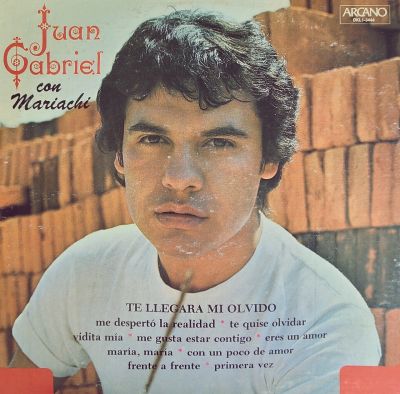GUITAR
The poignant meaning behind Amor Eterno lyrics

Juan Gabriel LP cover
Amor Eterno is a powerful and emotive ballad that has been touching the hearts of music lovers around the world since its release in 1984. Written by the legendary Mexican singer and songwriter Juan Gabriel, the song is a deeply personal exploration of love, loss, and the enduring power of memory and longing.
The inspiration for Amor Eterno came from Juan Gabriel's own personal experiences, specifically the loss of his mother, who died when he was only 13 years old.
The song's lyrics express the deep and conflicting emotions that arise in the aftermath of a great loss. The lines "Cómo quisiera, ay, que tú vivieras / que tus ojitos jamás se hubieran cerrado nunca" (How I wish, oh, that you were still alive / that your little eyes had never closed) perfectly capture the raw and earnest sentiment that runs throughout the song. The lyrics also speak to the idea of eternal love and the hope that, in the absence of our loved ones, their memories will endure and keep them with us in another way.
Listen to Amor Eterno by Juan Gabriel:
Musically, Amor Eterno is a masterful composition that blends traditional Mexican music with the elements of pop. The song features a simple yet powerful chord progression, with the use of acoustic guitar, strings, and brass instruments giving it a timeless and universal appeal. Juan Gabriel's soaring vocals add an extra layer of intensity, making the song a true masterpiece of musical expression.
Some of the most notable covers of Amor Eterno include those by Rocío Dúrcal, Pedro Fernández, and Mariachi Vargas de Tecalitlán. Each interpretation of the song brings a unique perspective to its themes regardless of the decade of its release, and serves as a testament to the enduring power and beauty of Juan Gabriel's music.
In the end, Amor Eterno is a song that will continue to inspire and move us for generations to come. Its universal themes of love, loss, and yearning speak to the human experience in an honest and deeply moving way, and its timeless beauty and power have made it an enduring classic of Latin American music. The meaning and lyrics are also a testament to the scale of Juan Gabriel's talent and his ability to connect with his audience on a more profound level.



